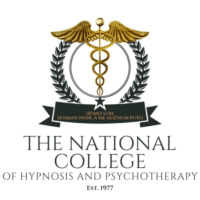
Introduction
This document should be read with the NCHP/NSTT code of ethics and professional conduct. In addition, if members are UKCP full clinical members, they must follow this policy in conjunction with our re-accreditation policy, the UKCP CPD policy and the College of Outcome Oriented and Hypno-psychotherapies CPD Policy.
Types of CPD:
Acceptable CPD activities include:
- Clinical supervision
- Peer support groups
- Professional qualifications or formal courses of study (for example, a master’s degree or PhD)
- Attendance at organised events such as:
- Conferences
- Workshops
- Webinars
- Private studies such as:
- Reading relevant books
- Research
- Writing of:
- articles
- case studies
- books
- Watching/participating in a relevant video or online resource
- Participation in profession-related work such as:
- Committee participation
- Attendance at organised, professional gatherings
Usually, a proportion of CPD will address the awareness of developments in contemporary thinking and best practice (particularly concerning equalities and diversity) and give evidence of reflective/reflexive practices.
Members should undertake an appropriate range of CPD activities. The individual therapist must determine the right mix for themselves as long as they can justify it. Each member must demonstrate a balance of activities applicable to their level of practice.
Usually, registrants would be able to demonstrate a proportion of their activities via objective processes (for example, certificates of attendance) and justify why they cannot if that is the case. The aim is to provide maximum flexibility while recognising that (for UKCP registrants) UKCP needs to see evidence to support members’ claims as a regulator.
Other activities such as (journaled) reading or watching video content may be considered in certain circumstances. For example, such circumstances may include illness, caring for a family member, or maternity.
If members are unsure of the validity of CPD activities, they must check with the NCHP/NSTT before inclusion.
Amount of CPD:
UKCP Registrant Members:
The requirement is that members typically conduct a minimum of 250 hours of CPD over any five years and a minimum of 20 hours in any one year. See below for information applicable in the case of breaks in practice.
Non-UKCP Registrant (Associate and Fellow) Members:
Other members must demonstrate having undertaken a minimum of 15 hours of continuing professional development per year (excluding clinical supervision). See below for information applicable in the case of breaks in practice.
Review of CPD:
UKCP Registrant Members:
Members’ CPD will be reviewed annually at the renewal of NSTT membership and five-yearly at UKCP re-accreditation.
Non-UKCP Registrant (Associate and Fellow) Members:
Members’ CPD will be reviewed annually at the renewal of NSTT membership.
Rules for Breaks in Practice:
This section gives the minimum criteria for those who take a break in practice, whether voluntarily or not. It does not cover those whose break results from a grievance or complaint or those who allow their registration to lapse.
We recognise that members may take breaks for many reasons. We consider these on a case-by-case basis.
Any member who takes a break from practice for three months or more must inform NCHP/NSTT. In addition, there may be requirements for further training to assist in their return to practice.
Any break between three and six months can conclude with a regular supervisor submitting a short report to say the member is fit to return to practice. Any break longer than six months will also require a plan of CPD to make good any deficiency in terms of time absent, supported by the supervisor. This report need not be overly detailed but should address, if applicable, the reasons for the break.
Any break over twelve months will require a Return to Practice and Restoration to the Register application and process. For further details, see “Application for Restoration to the Register after a Voluntary Break from Registration – Guidance notes.”
Date of the last amendment to this document and ratification by The Academic Board – 16/5/2022
